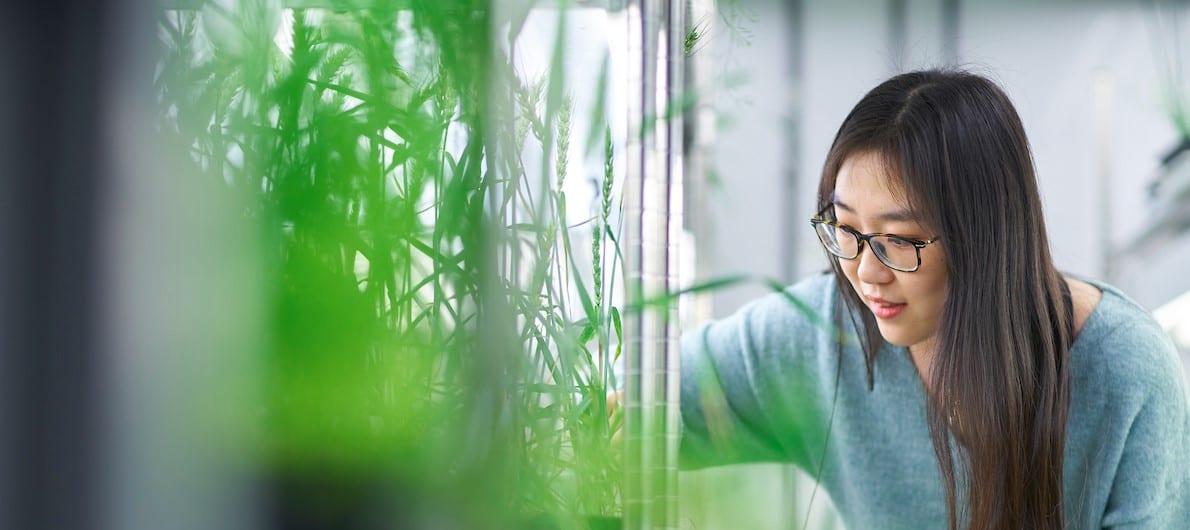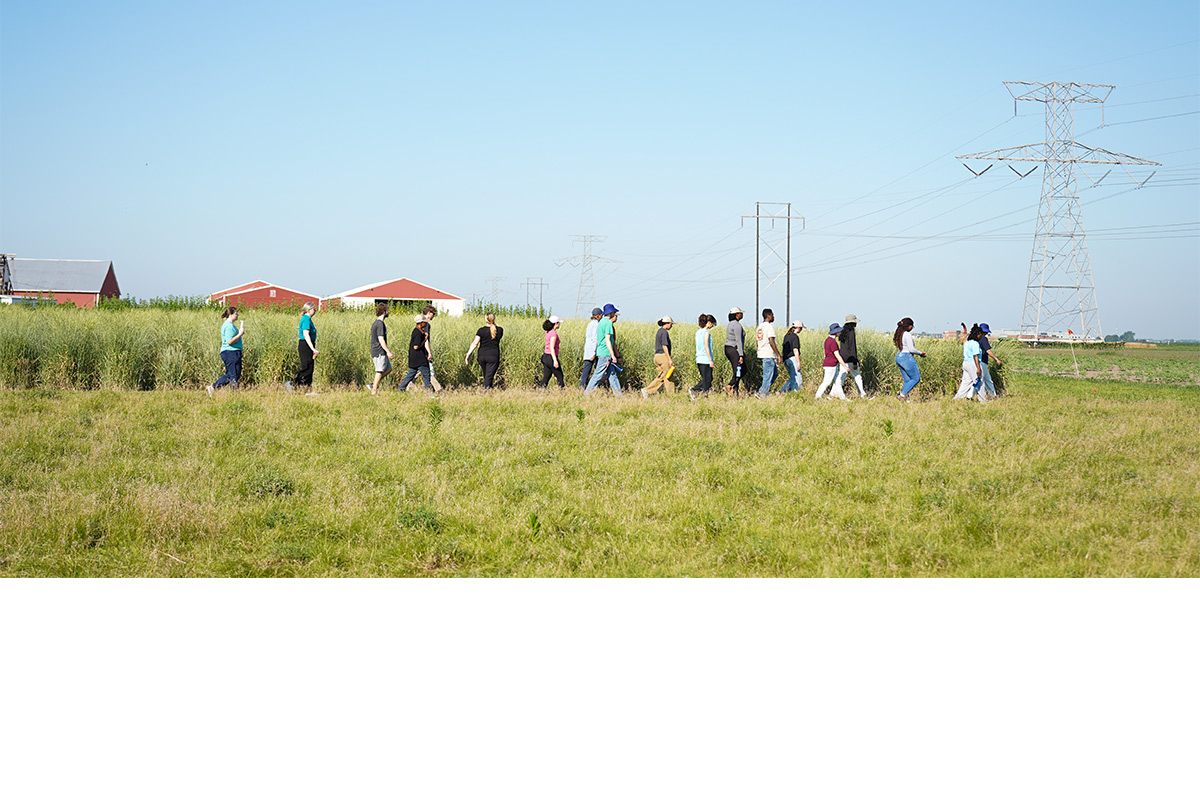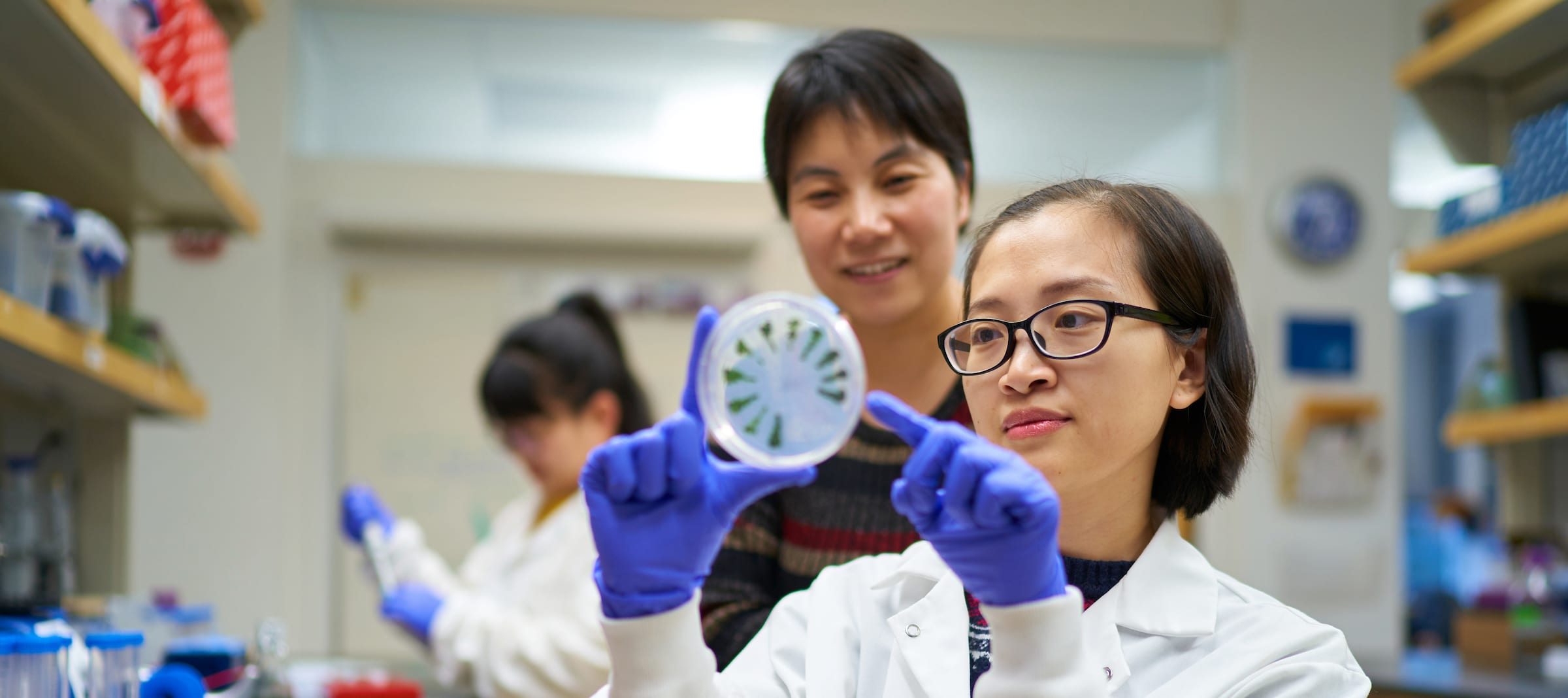Undergraduate Education
Through hands-on research experiences, we can equip undergraduates with the skills, experiences, and mentors to pursue successful careers in science. Our undergraduate education research and outreach aims to create a range of research opportunities and activities that help students build a strong foundation in the sciences. Through our education research, we can continue to understand how students learn about scientific concepts and strategies for improving how we teach science education.
Research Experience for Undergraduates Internship
Immersive lab experiences and strong mentors are essential to fostering the next generation of plant scientists.
Our Research Experience for Undergraduates summer internship program exposes students to all aspects of modern scientific research, from design to experimentation to reporting. By pairing each intern with a faculty mentor, students gain unique insight into the process and training involved in becoming a scientist, and the broader impact of scientific discovery. The program is made possible through generous support from the National Science Foundation.
National Science Foundation’s Research Experiences for Undergraduates (NSF REU) applications for undergraduates are currently open, but all other internships applications for high school or undergraduates will be open in March.
Course-Based Undergraduate Research Experiences (CURES)
Course-Based Undergraduate Research Experiences (CUREs) are impactful experiences for undergraduate students.
Course-Based Undergraduate Research Experiences (CUREs) provide undergraduate students with valuable, authentic hands-on research opportunities. At the Danforth Center, CUREs immerse students in foundational scientific research, enhancing academic achievement, shaping future career aspirations, and fostering interest in STEM fields. Through these experiences, students engage in authentic scientific practices, formulate research questions, and process data to generate new knowledge within collaborative teams.


Research Experience for Undergraduates Internship Program
